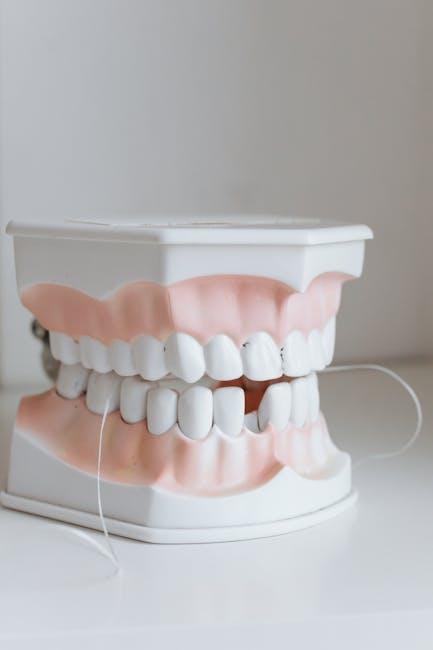After Florida’s fluoride ban, here’s how to keep your kids’ teeth healthy
With Florida’s recent ban on the use of fluoride in public water systems, many parents and caregivers around Tampa Bay are wondering how to best protect their children’s dental health. Fluoride has long been a key player in preventing tooth decay, but with its removal, it is vital to explore alternative methods to maintain strong, healthy teeth for kids. In this article, we’ll walk you through practical tips, fluoride alternatives, and expert advice to ensure your child’s smile remains bright and cavity-free.
Understanding Florida’s Fluoride Ban
Florida’s decision to ban water fluoridation has sparked mixed reactions among health professionals, scientists, and families. While fluoride is known to help prevent cavities by restoring minerals to tooth enamel and fighting bacteria, concerns about overexposure and health risks led to the legislative change.
In light of this ban, it’s important to emphasize that fluoride is simply one piece of the oral health puzzle. Proper dental hygiene, diet, and routine dental visits remain essential pillars of strong teeth.
Why Fluoride Was Important for Kids’ Teeth
- Prevents tooth decay: Fluoride strengthens enamel to resist acid attacks from bacteria.
- Remineralization: It repairs early signs of decay before cavities develop.
- Cost-effective community protection: Adding fluoride to public water reduced tooth decay rates nationwide.
Since fluoride will no longer be delivered through tap water, parents need to adapt and bolster oral care routines accordingly.
Top Practical Tips for Keeping Kids’ Teeth Healthy Without Fluoride
Here are proven ways you can maintain your child’s dental health effectively — even without fluoride in drinking water.
1. Maintain a Consistent Brushing Routine
Brush teeth twice a day with a fluoride-free or low-fluoride toothpaste if preferred, using a pea-sized amount for children under 6. Encourage gentle brushing to protect gums but ensure thorough cleaning.
2. Use Fluoride Alternatives or Supplements (If Recommended)
Talk with your pediatric dentist about fluoride varnish treatments or supplements. Some kids might still benefit from professional fluoride applications even if it’s banned in water. Other mineral-based alternatives like xylitol or nano-hydroxyapatite are emerging as cavity fighters.
3. Promote a Balanced, Low-Sugar Diet
Limit sweets, sugary drinks, and sticky snacks. Foods high in sugar feed cavity-causing bacteria. Instead, opt for:
- Fresh fruits and vegetables
- Whole grains
- Dairy products for calcium
- Water and milk instead of juice or soda
4. Encourage Hydration with Bottled or Filtered Water
Since tap water in Florida is now fluoride-free, consider providing bottled waters that contain natural fluoride or invest in fluoride delivering water filters after consulting with a dental expert.
5. Schedule Regular Dental Checkups
Make sure to visit the dentist every six months or as recommended. Professional cleaning and exams help catch dental issues early and allow for tailored preventive care.
Fluoride Alternatives: What You Should Know
With the removal of fluoride from municipal water, alternative dental protective measures have risen in popularity. Here’s a quick comparison of some top options:
| Option | Benefits | Considerations |
|---|---|---|
| Xylitol | Reduces cavity-causing bacteria, sugar substitute | Best in chewing gum or lozenges, not a full fluoride replacement |
| Nano-Hydroxyapatite | Helps remineralize enamel, biomimetic compound | Growing research, often found in toothpaste |
| Calcium & Phosphate Supplements | Supports enamel strength and repair | Can be part of toothpaste or supplements; consult dentist |
| Professional Fluoride Varnishes | Applied selectively at dental clinics | Requires dentist visits; temporary protection |
Expert Advice: Pediatric Dentists Weigh In
Dr. Susan Hernandez, a leading pediatric dentist in Tampa Bay, recommends parents focus on comprehensive oral hygiene and diet controls. “Even without fluoride in the water, children can maintain excellent dental health with proper brushing, diet moderation, and regular checkups. We also have safe professional options that can supplement at-risk kids,” she explains.
She stresses the importance of education, “Teaching children the value of oral care and supporting positive habits early on creates lifelong benefits.”
Real-Life Experience: How Local Families Are Adapting
The Ramirez Family, Tampa Bay: “After hearing about the fluoride ban, we started using a dentist-recommended toothpaste with nano-hydroxyapatite and cut back our kids’ sugary snacks. Our dentist also applied fluoride varnish during visits. So far, our kids’ dental checkups have stayed great!”
Janice, a mother of two: “I was worried at first, but focusing on regular brushing, better diet choices, and getting advice from our pediatrician helped me feel confident in keeping my children’s teeth healthy.”
Summary: How to Keep Kids’ Teeth Healthy Post-Fluoride Ban
- Maintain strong daily dental hygiene routines with brushing and flossing.
- Use fluoride alternatives where appropriate; consult your dentist.
- Limit sugary snacks and beverages to reduce cavity risk.
- Provide safe drinking water that supports dental health.
- Schedule regular pediatric dental visits for professional care and guidance.
Conclusion
Florida’s fluoride ban marks a significant change in how children receive cavity protection through public health initiatives. While fluoride’s absence from drinking water poses new challenges, it doesn’t mean kids are destined to suffer from poor dental health. Parents can take proactive steps by reinforcing good oral hygiene, adopting fluoride alternatives, managing sugar intake, and working closely with dental professionals. By staying informed and engaged, Tampa Bay families can still enjoy confident, healthy smiles in a fluoride-free era.
For ongoing updates and expert dental health advice, keep following the Tampa Bay Times and consult your pediatric dentist regularly.


